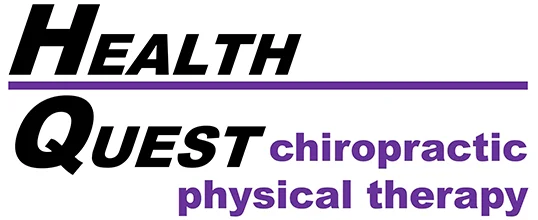If you’re one of the millions of Americans living with chronic back or neck pain, you’re likely familiar with the cycle of medications, physical therapy, and even the looming possibility of surgery. But what if there were a non-surgical, drug-free alternative that could bring lasting relief? At Health Quest Chiropractic and Physical Therapy, we specialize in non-surgical spinal decompression—an advanced, gentle therapy that’s changing the way we approach spine care.
What Is Spinal Decompression?
Non-surgical spinal decompression (NSSD) is a breakthrough therapy designed to relieve pressure on spinal discs and nerves using controlled mechanical traction. Unlike traditional traction methods, spinal decompression is performed using a state-of-the-art computerized table that carefully adjusts and customizes the force and angle of decompression to target specific areas of concern.
During treatment, you’ll lie comfortably on the table while it gently stretches and relaxes your spine in cycles. This process creates negative pressure within the discs, allowing bulging or herniated material to retract, reducing pressure on nerves and promoting healing.
The Science Behind the Relief
Spinal discs act as cushions between the bones of your spine. When they become compressed—due to aging, injury, or lifestyle factors—they can bulge or herniate, pressing against nearby nerves and causing pain, numbness, or weakness. By relieving pressure and improving circulation, spinal decompression encourages:
- Rehydration of spinal discs
- Repositioning of herniated or bulging disc material
- Reduced inflammation around nerves
- Improved mobility and function
Clinical studies and patient experiences alike have shown promising results, especially for those suffering from:
- Herniated or bulging discs
- Degenerative disc disease
- Sciatica
- Spinal stenosis
- Posterior facet syndrome
- Chronic neck or low back pain
Even some post-surgical patients have experienced significant relief with spinal decompression.
Why Consider Spinal Decompression Before Surgery?
Surgery can be a necessary solution in some cases, but it comes with risks—pain, complications, long recovery times, and high costs. At Health Quest, we believe no one should undergo spinal surgery without first exploring conservative, non-invasive alternatives.
Unlike surgery, spinal decompression:
- Involves no incisions or downtime
- Does not rely on medications or injections
- Is safe, gentle, and FDA-cleared
- Can produce lasting results with minimal risk
It’s also worth noting that many Americans rely on over-the-counter pain medications or opioids to manage their back pain—options that carry their own dangers, including addiction and life-threatening side effects. Spinal decompression offers a healthier, evidence-based path toward recovery.
Is Spinal Decompression Right for You?
If you’ve been diagnosed with a disc injury, nerve compression, or chronic back or neck pain—and you want to avoid surgery—spinal decompression might be an ideal solution. At Health Quest Chiropractic and Physical Therapy, we conduct a comprehensive evaluation to determine if you’re a good candidate for this therapy.
Our experienced team, led by compassionate professionals and supported by advanced equipment, is dedicated to helping you find relief in a clean, welcoming clinic environment.
Discover a Better Path to Pain Relief
At Health Quest, we want every patient to know: you have options. Spinal decompression has helped countless people regain their mobility, reduce their pain, and avoid unnecessary surgery. Let’s see if it can do the same for you.
Contact us today to schedule your consultation and take the first step toward a healthier, pain-free future—without drugs, injections, or surgery.




